
Male feelings of adequacy and sexual performance may have a much deeper connection than previously thought, a recent study showed that 1 in 4 men visiting the doctor for the first time for Erectile Dysfunction were under 40. It’s clear now that stress and impotence belong in the same conversation, but exactly what are men stressing about that could be affecting their sex lives, and just as important, are they talking to their doctors about it?
To further explore how a man’s relationships with his own body affects his sexual health, we surveyed over 1,200 Europeans and Americans about average penis size and men’s relationship with their erections. Rest assured, any concerns you may feel are more normal than you might think.
Satisfied by Size
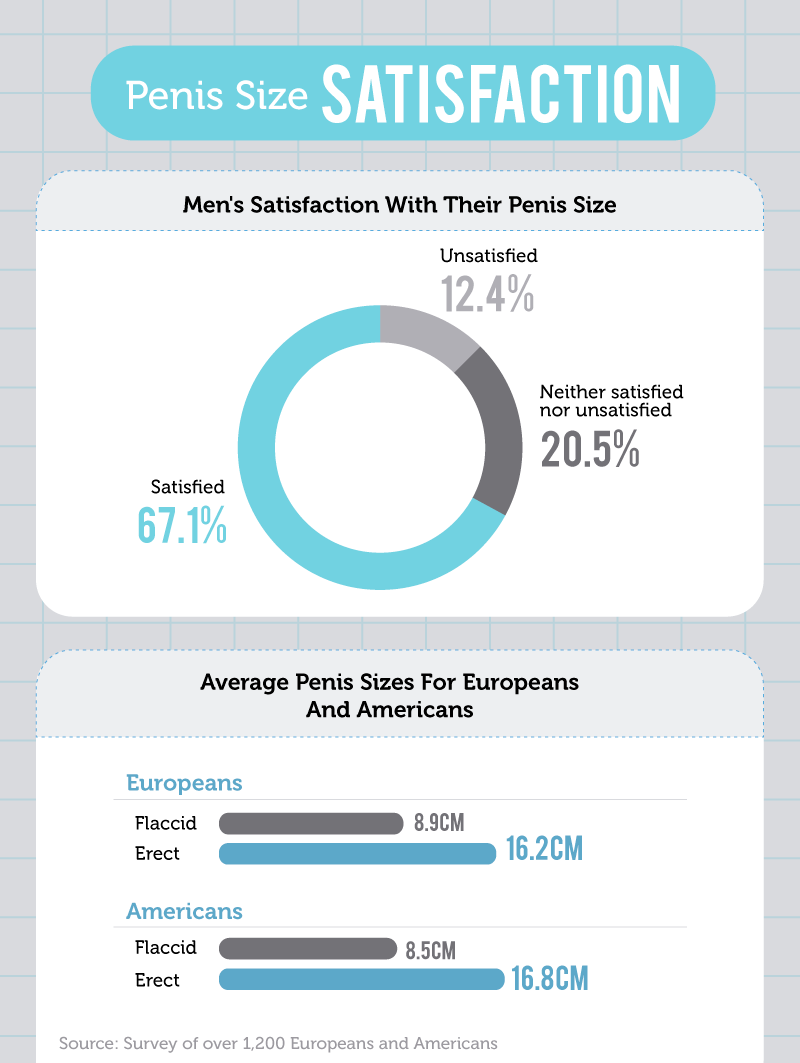
Overall, the majority of European and American men report being satisfied with their penis size. With an average flaccid size of 8.9 cm and 8.5 cm for European and American men respectively, only 12.4 percent reported dissatisfaction. The average size nearly doubled when measuring erect penises – 16.2 cm for European men and 16.8 cm for American men.
Even men who measure up can be insecure about their size, though. In fact, men who have anxiety over being “too small,” despite being a completely normal size, may suffer from “small penis syndrome.” While this may sound like a physical ailment, it’s more reflective of mental health.
Penis Enlargement
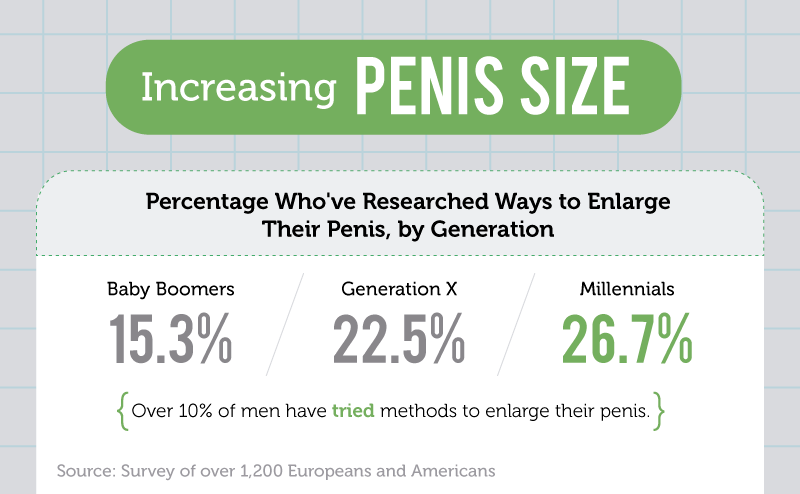
Fear of having a small penis may not only keep men from having sex but also have them contemplating medication or going under the knife. Procedures involving penises may leave men cringing, except when the insecurity of their size leads them to enlargement techniques. Whether they are bogus, pills, creams, pumps, and surgery all promise to fulfil a man’s desire for a larger penis. While many of these techniques haven’t been proven to work, over 10 percent of men have tried methods to enlarge their penis.
Staying the Course
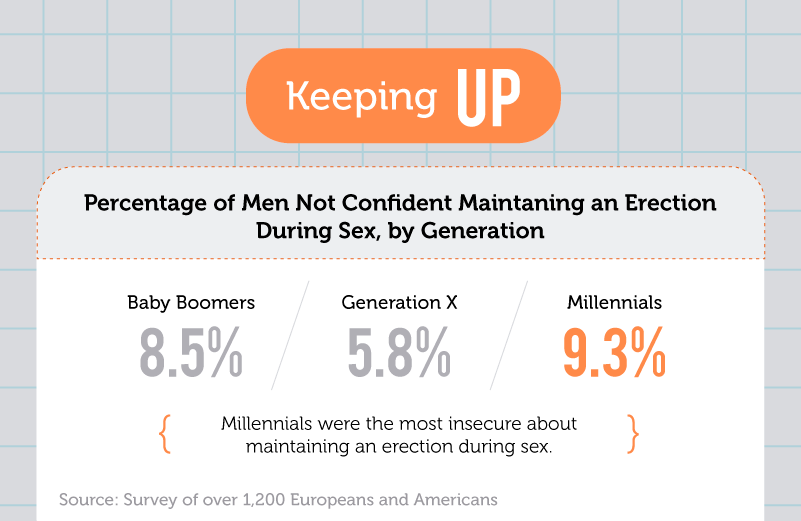
Size aside, men are also bombarded with sex ideals and lasting for certain amounts of time. Some men may also be affected by the pressure to perform, and that pressure may be actually halting them from doing so. Around 9 percent of millennial men didn’t feel confident maintaining an erection during sex, followed by 8.5 percent of baby boomers. Gen Xers felt the most confident in sustainability, 6 percent reported a lack of confidence.
Let’s Talk About Erections
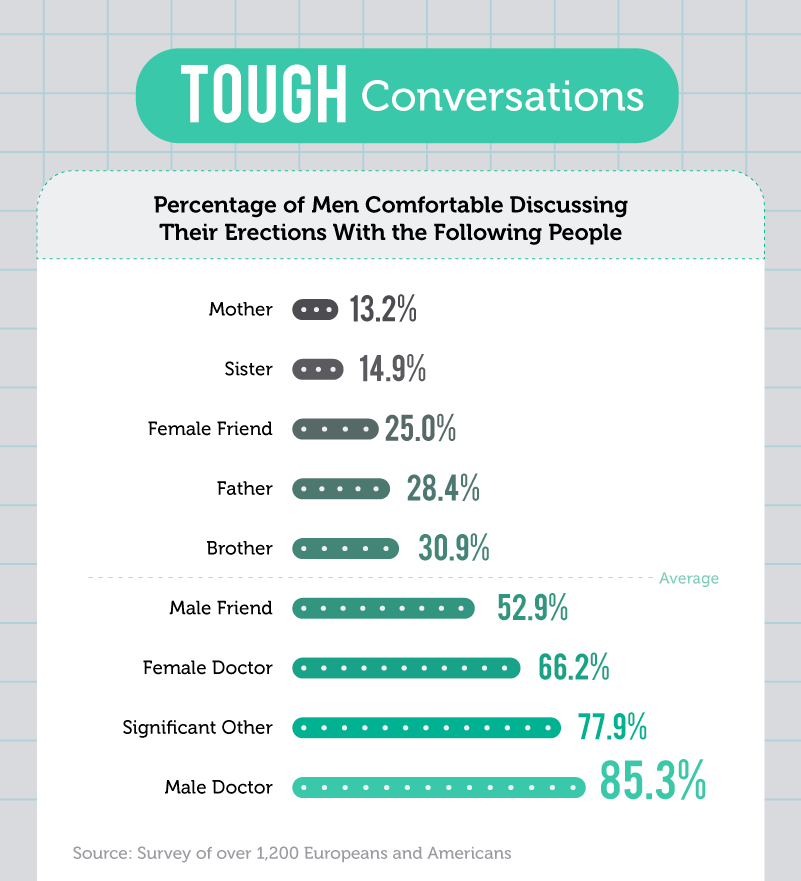
Talking about penises and erections – or a lack thereof – can be incredibly uncomfortable or helpful, depending on whom the conversation is with. The majority of men agreed talking about their erections with their mother or sister was very uncomfortable. It isn’t just a gender thing, though. Over 70 percent of men were uncomfortable talking about their penis with their father.
When it came to male friends, significant others, and male and female doctors, however, more than half of men were comfortable discussing their erections. Men were the most comfortable having these discussions with male doctors.
A Professional Opinion
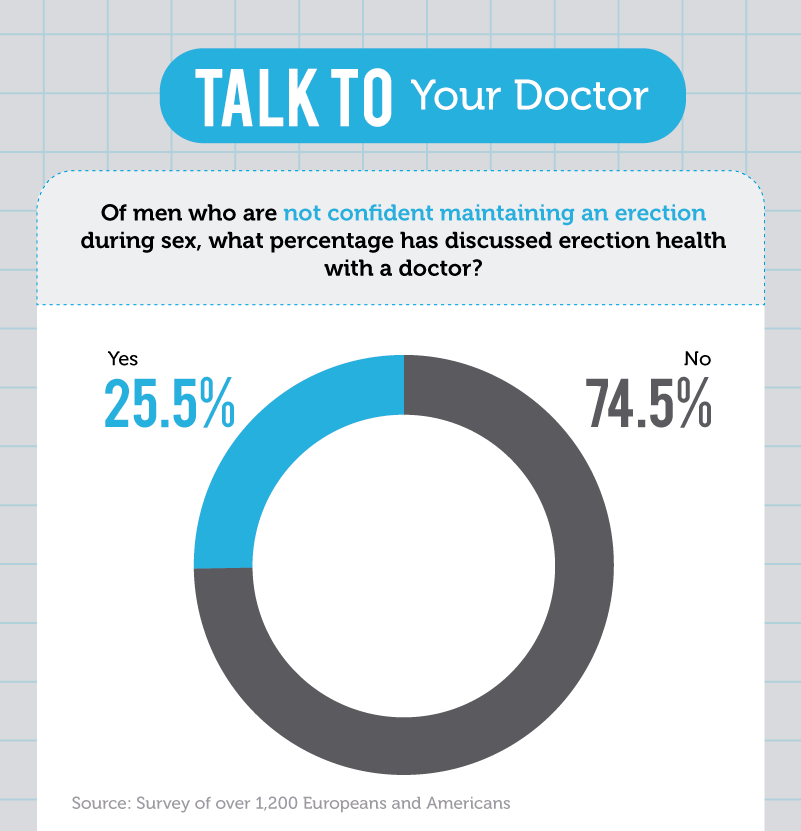
It would make sense if men concerned about holding an erection were more likely to seek help or education from their doctors, but it turns out the opposite is true. Under 26 percent of men lacking confidence in maintaining an erection talked to their doctor about it. It may be uncomfortable, but this conversation may be the only way to receive proper and informative help. Doctors can investigate the root of the problem and provide information about correct treatment. Talking about erectile health with your doctor can be very important for clarity of mind and treating any medical concerns.
Does Size Matter?
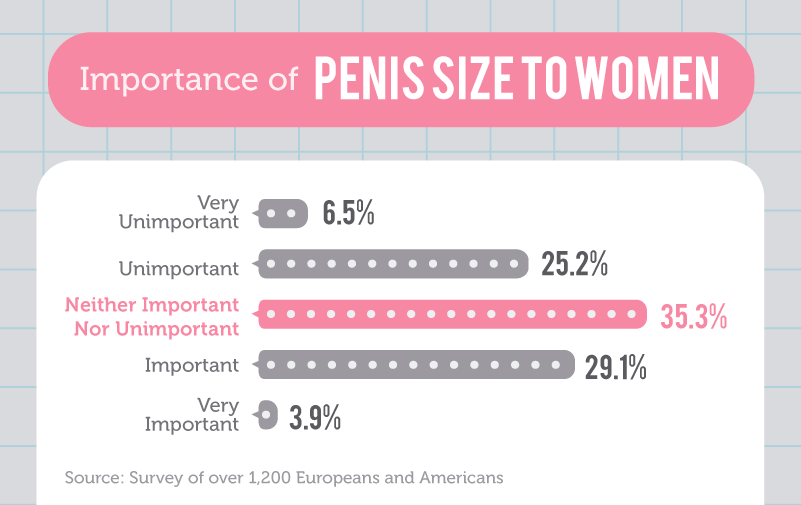
Men with concerns about penis size may be really concerned with something else: How their partners will judge their size. After all, why worry about size if nobody else sees it?
So how do women feel about the size of a man’s penis? Most of them really don’t care. Over 35 percent of women reported penis size as being neither important nor unimportant, and 25 percent thought size was unimportant. Of course, some women think size is very important – almost 4 percent – but there are far more women who believe it isn’t about the penis, but the person.
Pressing Pause on Passion
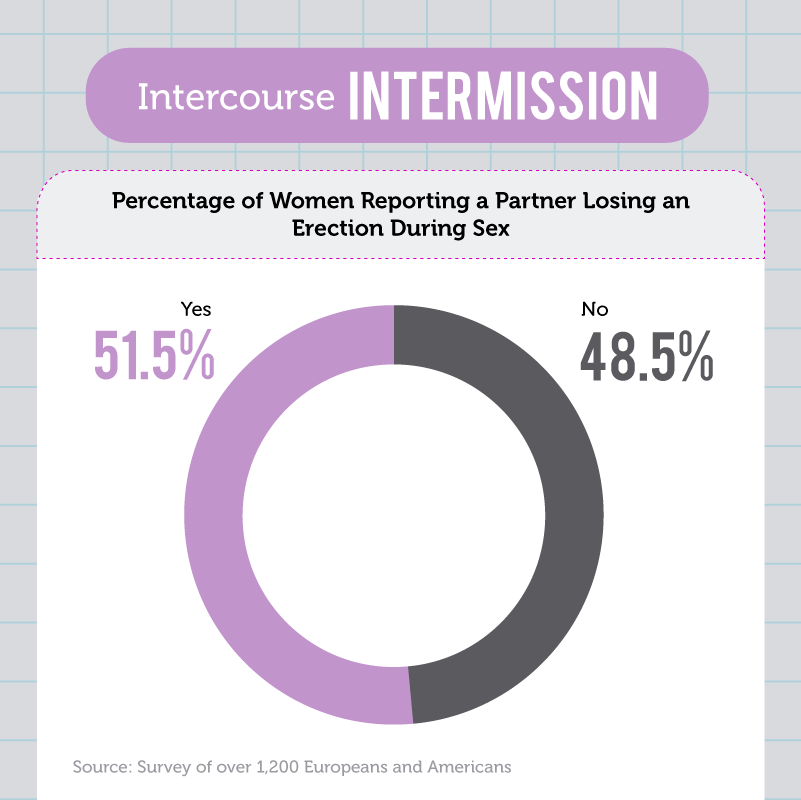
A little over half of women reported a partner losing an erection during sex. And while most may not care about an intermittent case of erectile dysfunction, it can be a traumatic experience for men. Losing an erection can leave a man feeling insecure and embarrassed, but women may have similar feelings in the same situation. Internalising and blaming oneself can follow a loss of an erection, leaving women to feel unattractive and unwanted. Despite knowing erectile dysfunction is natural, women may need some reassurance that it isn’t about her. But men may need it too – acknowledging an erection issue isn’t an ultimate fail, and keeping the intimacy going is important. Erection loss isn’t a dead end in pleasure; it may just mean finding a different way.
More Normal Than You Think
It may be awkward and embarrassing to discuss, but the fact of the matter is that penis sizes vary, and erections don’t always last. Talking about it is the first step to accepting oneself and others and receiving the proper help when needed. At Superdrug Online Doctor, we explore the topic of men’s health and sexual wellness. Whether you’re too busy or fear judgement of going to the pharmacy – we can deliver your prescription directly to your door to meet your.
With the recent launch of Pfizer’s new product ‘Viagra Connect’, now more than ever, it’s easier for men to access erectile dysfunction medication when they need it. At Superdrug Online Doctor we offer Viagra Connect, as well as a range of other erectile dysfunction treatments, including Viagra, Sildenafil, and more. If you’re not confident that you can keep an erection during sex, you can get assessed for treatment for free by our online doctors and get treatment recommendations and free delivery or click and collect options for approved medications.
Methodology
We surveyed 1,296 European and American respondents in a survey of men’s sexual health. Forty-nine percent of respondents were European, and 51 percent were American. Forty-six percent of participants identified as female, and 54 percent identified as male. Participants ranged in age from 18 to 75, with a mean of 35 and a standard deviation of 10.9.
The data we are presenting rely on self-reporting. No statistical testing was performed, so the claims listed above are based on means alone. As such, this content is exploratory. For questions, feel free to contact [email protected].
Fair Use Statement
Ready to start a conversation about erections? We permit you to share this project’s images and content for noncommercial purposes. Just don’t forget to link back to this page to give the authors proper credit.
Sources
- https://www.mic.com/articles/108118/calvin-klein-s-photoshop-of-justin-bieber-is-what-s-wrong-with-male-beauty-standards#.npQCgbBik
- https://www.vice.com/en_ca/article/8x5k7p/men-told-us-how-having-a-small-penis-messes-with-their-minds
- https://www.nhs.uk/live-well/sexual-health/penis-enlargement/
- https://sexualadviceassociation.co.uk/erectile-dysfunction/
- https://www.huffingtonpost.co.uk/2016/02/03/how-erectile-dysfunction-affects-women_n_9149362.html